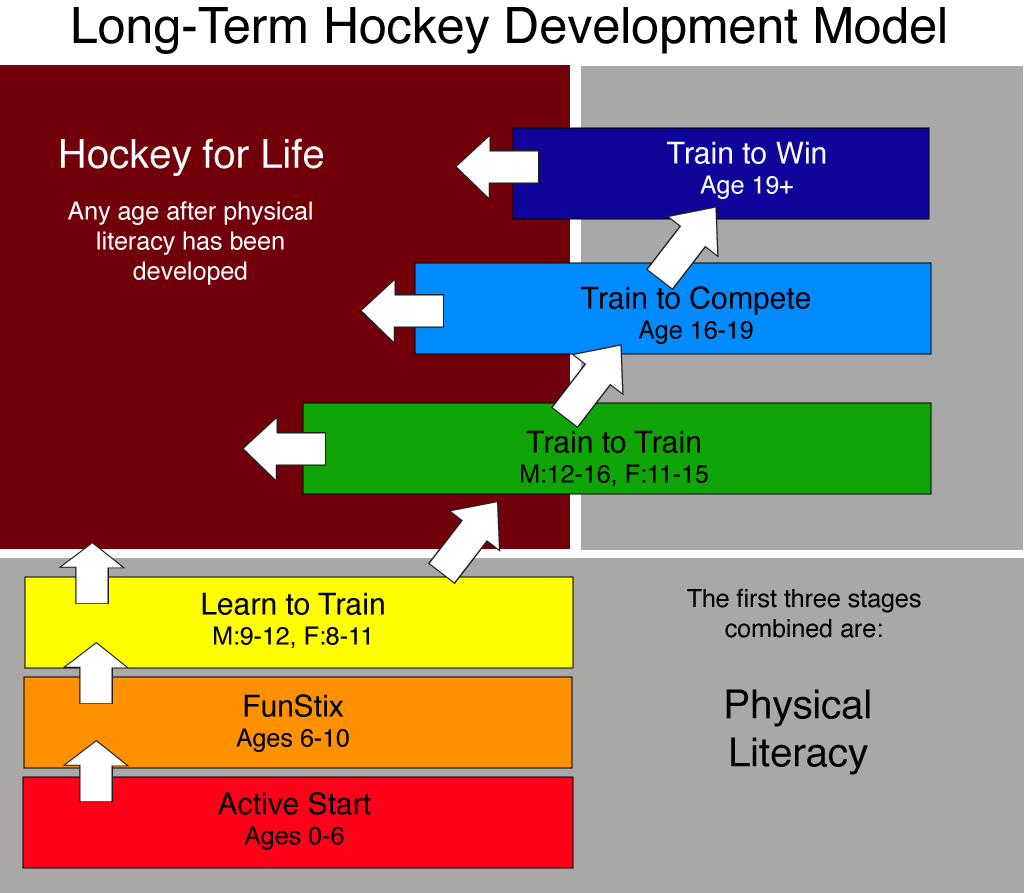The Long-Term Athlete Development (LTAD) model is a framework developed to provide insights into the optimal training, competition, and recovery schedule that respects and utilizes the natural stages of physical, mental, and emotional growth in athletes.
Sports can be classified as early or late specialization. Sports such as gymnastics and figure skating qualify as early specialization, while other sports such as soccer and field hockey are classified as late specialization. Because field hockey is a late specialization sport, LTHD actively discourages early specialization since premature specialization contributes to imbalanced physical development, overuse injuries, early burnout, and inadequate development of movement and sports skills.
Long Term Hockey Development (LTHD) recognizes these 7 stages in the development of field hockey players:
- Stage 1: Active Start: Ages 0-U6
- Stage 2: Fundamentals: Ages 6-10
- Stage 3: Learning to Train: Ages 9-12 males, 8-11 females
- Stage 4: Training to Train: Ages 12-16 males, 11-15 females
- Stage 5: Training to Compete: Ages 16-19
- Stage 6: Training to Win: Ages 19 and beyond
- Stage 7: Hockey for Life: All ages
The first three stages of LTHD encourage physical literacy for all players, regardless of their abilities and correspond to the ages prior to the adolescent growth spurt.
Stages four, five, and six focus on developing excellence.
Stage seven encourages lifelong physical activity, and players may choose to enter this stage at any time in their playing career. Field Hockey Canada has identified the LTHD pathway as the desired model for player development in Canada.The current system for Athlete Development emphasizes winning and competition rather than maximizing the periods of accelerated adaptation to training and developing core field hockey skills.
LTHD is based on general findings that the greater the quality of player preparation, the greater the likelihood that players of all abilities will remain active throughout their lifetimes, and the greater the likelihood that the performance peaks of those who pursue excellence will be higher and maintained over a longer period. The LTHD model has the ability to systematically enhance player development across all stages of development.



